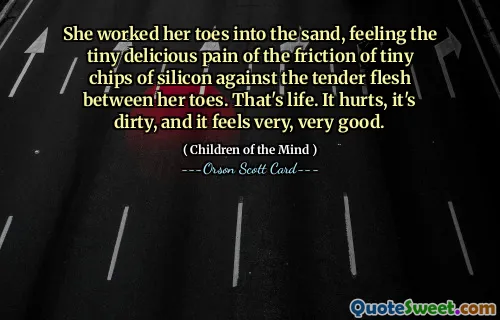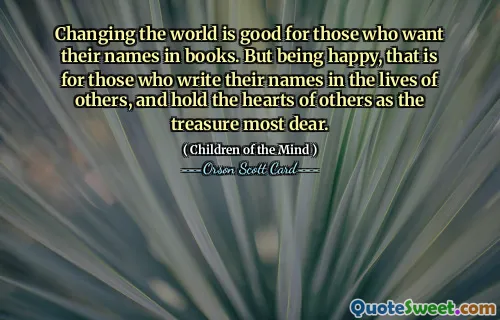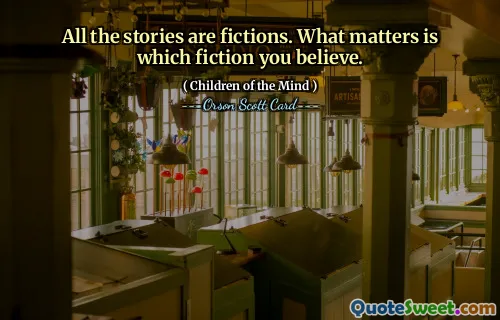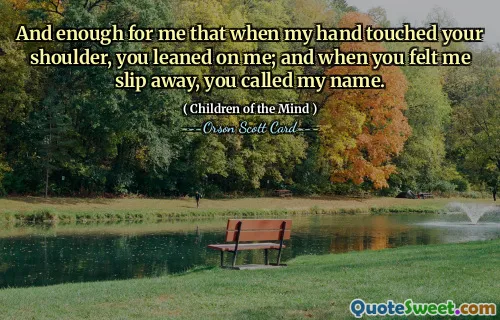
Firequencher raised his hand. I've been staying out of family conversations. Do I get credit for that?
In "Children of the Mind" by Orson Scott Card, the character Firequencher expresses his desire to avoid involvement in family discussions. His statement highlights a sense of detachment or perhaps a desire to remain neutral in a complex familial situation. By raising his hand and asking if he gets credit for staying out, he emphasizes the difficulty of navigating family dynamics and the consequences of taking a side. Firequencher's query reflects a broader theme in the novel about the roles individuals play within families and the potential tension that arises from differing perspectives. Avoiding conflict can sometimes be seen as a deliberate choice to maintain peace, but it may also signify an unwillingness to engage in important conversations that shape relationships. This illustrates the complexities of family interaction and the value of communication in resolving underlying issues.
In "Children of the Mind," the character Firequencher expresses his desire to avoid involvement in family discussions. His statement highlights a sense of detachment and the challenges of navigating complex familial situations. By raising his hand and asking if he gets credit for staying out, he emphasizes the difficulties of taking sides.
Firequencher's query reflects a broader theme about individual roles within families and the tension arising from differing viewpoints. Avoiding conflict can be a choice for peace but may also indicate a reluctance to engage in crucial conversations that shape relationships, illustrating the importance of communication in resolving issues.











